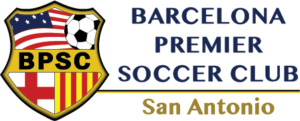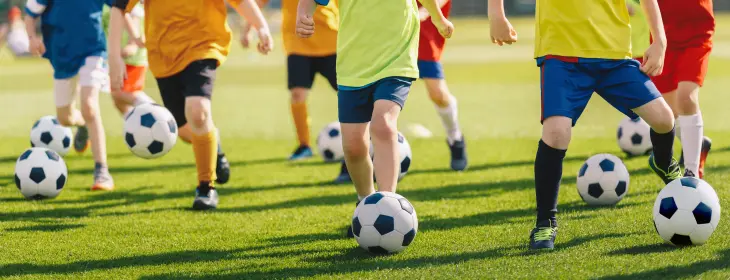Unveiling the Best Soccer Nutrition Tips for Players in 2024
Nutrition plays a vital role in a soccer player’s performance on the field. By understanding the basics of soccer nutrition, players can optimize their energy levels, endurance, and overall health. Proper nutrition is crucial for soccer players because it directly impacts their energy levels, recovery, and ability to perform at their best. By taking the proper nutrients, players can enhance their strength, agility, and mental focus on the field.
Soccer players have specific nutritional requirements to support their demanding physical activity. These needs include maintaining energy levels, promoting muscle recovery, and supporting overall health and well-being. Some common nutrition mistakes for soccer players include skipping meals, eating unhealthy snacks, and not staying hydrated. Avoiding these mistakes can help players maintain consistent energy levels and support their overall performance.
This guide will provide you with soccer nutrition tips for players in 2024.
Soccer Nutrition Tips: Best Soccer Nutrition 2024
Here we have a detailed guide on Best Soccer Nutrition 2024 for you:
Daily Nutrition for Soccer Players
A balanced diet for soccer players should include foods from different groups, such as vegetables, fruits, whole grains, lean proteins, and healthy fats. Regular, balanced meals and staying hydrated are vital components of daily nutrition.
A balanced diet for soccer players should include a mix of fats, carbs, and proteins for the necessary energy to train for matches and support muscle recovery and overall health.
Essential Macronutrients
- Carbohydrates
Carbs are like the fuel for your body. They provide the energy you need to run, jump, and play your best during practices and games. Foods like bread, pasta, rice, and fruits are good sources of carbohydrates.
- Proteins
Proteins are your body’s building blocks. They help repair and grow your muscles, essential for recovery after training and matches. Excellent sources of protein include chicken, eggs, fish, and beans.
- Fats
Healthy fats are essential for your body, providing long-lasting energy and improving health. Nuts, olive oil, and avocados are rich in healthy fats.
See Also ULTIMATE GUIDE TO SOCCER TRAINING DRILLS FOR BEGINNERS IN 2024
Key Vitamins and Minerals
- Vitamin A: This vitamin supports your vision and immune system. You may get it from spinach, sweet potatoes, and carrots.
- Vitamin C: This vitamin helps the body absorb iron from food, strengthening the immune system. Excellent sources of vitamin C include oranges, bell peppers, and strawberries.
- Vitamin E: This vitamin has antioxidant properties and helps protect cells from damage. It is found in seeds, nuts, and leafy greens.
- Vitamin D: It’s crucial for strong bones as it aids calcium absorption. You may gain Vitamin D from foods like fortified milk, fatty fish, and sunlight.
- Vitamin B-Complex: This group of vitamins supports energy production and overall health. It is found in whole grains, eggs, and meat.
- Iron: It is responsible for carrying oxygen to muscles, helping you stay energized. Foods like red meat, lentils, and spinach are rich in iron.
- Calcium is vital for strong bones and muscles. Excellent sources of calcium include milk, yogurt, and cheese.
- Magnesium: Magnesium helps your muscles function correctly and supports energy production. It is usually found in nuts, seeds, and leafy greens.
- Zinc: It supports the immune system and helps with muscle recovery. Foods like meat, shellfish, and legumes are good sources of zinc.
- Potassium: Potassium is essential for muscle function and hydration. Bananas, potatoes, and beans are rich in potassium.
Pre-Game Nutrition
Eating the right things before a game can significantly impact your performance as a soccer player. Your pre-game meal aims to provide the right fuel for energy and keep you hydrated. Let’s break it down into simpler terms.
What to Eat Before a Game?
- Load up on complex carbohydrate sources, including brown rice, quinoa, or whole-grain pasta. These foods keep you going throughout the game by providing a steady energy release to maintain performance.
- Include moderate protein, such as grilled chicken breast, to support your muscles and aid recovery.
- Keep your pre-game meal low in fiber and fat, as these can cause digestive discomfort during the game.
Timing Your Meals
It is best to have your pre-game meal about 3 to 4 hours before kick-off. This gives your body enough time to digest and absorb the nutrients, providing you with sustained energy during the game.
Have it about 3 to 4 hours before starting the play
Sample Pre-Game Meals
- Start with grilled chicken breast for lean protein. Use your favorite herbs and spices as seasoning.
- Pair the chicken with a serving of brown rice or quinoa for sustained energy during the game.
- Include steamed vegetables like broccoli and carrots for added nutrients and fiber.
- Enjoy a banana or an apple for dessert to boost natural energy.
- Drink plenty of water before hitting the field to avoid dehydration.
This balanced meal provides the essential nutrients and energy to perform well during the game.
In-Game Nutrition and Hydration
Soccer players must eat adequately to perform at their best during games. In-game nutrition and hydration are crucial in sustaining energy levels and maintaining peak performance on the field.
Staying Hydrated During Matches
During intense matches, staying hydrated and maintaining energy levels is essential. Here are some simple guidelines to ensure optimal hydration and energy replenishment:
- Fast-digesting Carbs: Opt for fast-digesting carbohydrates like fruits or energy gels to provide quick bursts of energy without feeling weighed down.
- Fluids for Replenishing Energy and Hydration: Drink fluids like water or sports drinks. They help stay hydrated and replenish lost energy during the game.
- Simple Meals: Consume simple, easily digestible meals to avoid discomfort during play. Larger meals may not sit well during intense physical activity, so opt for smaller, lighter options.
See Also HOW TO STAY MOTIVATED AND IMPROVE YOUR SOCCER GAME IN 2024?
Best In-Game Snacks and Drinks
- Sports Drink to replenish electrolytes and fluids lost.
- Small Banana for natural sugars, potassium, and quick energy boost.
- Raisins for a rapid energy boost due to their natural sugar content.
- Granola bars provide a mix of carbohydrates, proteins, and fats.
- Rice cakes are easily adjustable and are a source of additional energy.
Managing Energy Levels During Play
Soccer matches require players to manage their energy levels effectively. They must pay attention to their bodies’ signals and refuel as needed during breaks in the game. Soccer players can optimize their performance throughout the match by incorporating these simple in-game nutrition strategies.
Post-Game Recovery Nutrition
Proper nutrition is vital to sustaining energy levels and enhancing performance on the field. Here, we’ll discuss the best nutrition tips for soccer players, covering in-game nutrition, post-game recovery, and the role of supplements.
Importance of Post-Game Nutrition
The importance of post-game nutrition cannot be overstated. It helps replenish glycogen stores and should be consumed within 60 minutes after the game. Aim for foods and drinks high in protein and carbs to aid muscle recovery and refuel your body.
Ideal Recovery Foods and Drink
- Quinoa salad with corn, black beans, lean protein, and avocado.
- Roasted or steamed vegetables
- Honey with Greek yogurt
- Chopped Nuts
- A tall glass of water or milk
Sample Post-Game Meals
For effective post-game recovery, consider meals like grilled salmon, sweet potato, and whole-grain pasta. Add a colorful salad, vinaigrette dressing, and fresh mixed berries for dessert. Remember to hydrate with plenty of water or a sports drink after an intense game.
Specialized Diet Plans
Personalized Soccer Diet Plans are created by understanding your needs, such as height, weight, position on the field, and body fat percentage. These Plans can optimize your performance and recovery.
Different positions on the soccer field may require specific dietary adjustments. Also, consider altering your diet on training days versus rest days. You must ensure 2 to 3 snacks daily and 3 balanced soccer meal plans.
Adjusting Diet for Age and Skill Level
A player’s age and skill level play a significant role in determining their nutritional needs. Younger players still growing and developing may require a diet supporting healthy growth and bone development.
On the other hand, older players may need to focus on maintaining muscle mass and bone density. Balancing your diet according to your body’s needs based on age and skill level is essential for optimizing performance and overall health.
Nutritional Supplements
While a balanced diet must be the primary source of essential nutrients, some players may benefit from incorporating nutritional supplements into their routine. Common supplements for soccer players include protein powders, omega-3 fatty acids, and D. These supplements can help support muscle recovery, reduce inflammation, and maintain overall health.
Understanding supplements’ potential risks and benefits before introducing them into your diet is essential. While some supplements can enhance performance and aid recovery, others may have adverse effects or interact with medications. Before including any new supplement in your routine, consult a professional to ensure it suits your unique needs and objectives.
How to Choose the Right Supplement?
Today, we have a avast array of products available on the market, and picking the right supplement can be more complex than it seems. It is essential to go for products certified by reputable organizations that have undergone rigorous testing for quality and safety.
Consider your specific goals and consult with a nutritionist or healthcare provider. They will help you determine which supplements may benefit you based on your needs and circumstances.
You can also visit this Ultimate Guide to Soccer Training Drills for Beginners in 2024 to learn soccer training drills for beginners.
Conclusion
By understanding and implementing these nutrition tips, soccer players can optimize their performance, support their overall health, and enhance their longevity. Barcelona Premier Soccer Club in San Antonio, Texas, stands out as the top youth soccer training academy, providing an exceptional year-round training program.. At Barcelona Premier Soccer Club, players receive comprehensive training that not only focuses on skill development and tactical understanding but also emphasizes the importance of proper nutrition. By integrating these essential nutrition strategies, players can ensure they are performing at their best and maintaining peak physical condition throughout the year.



